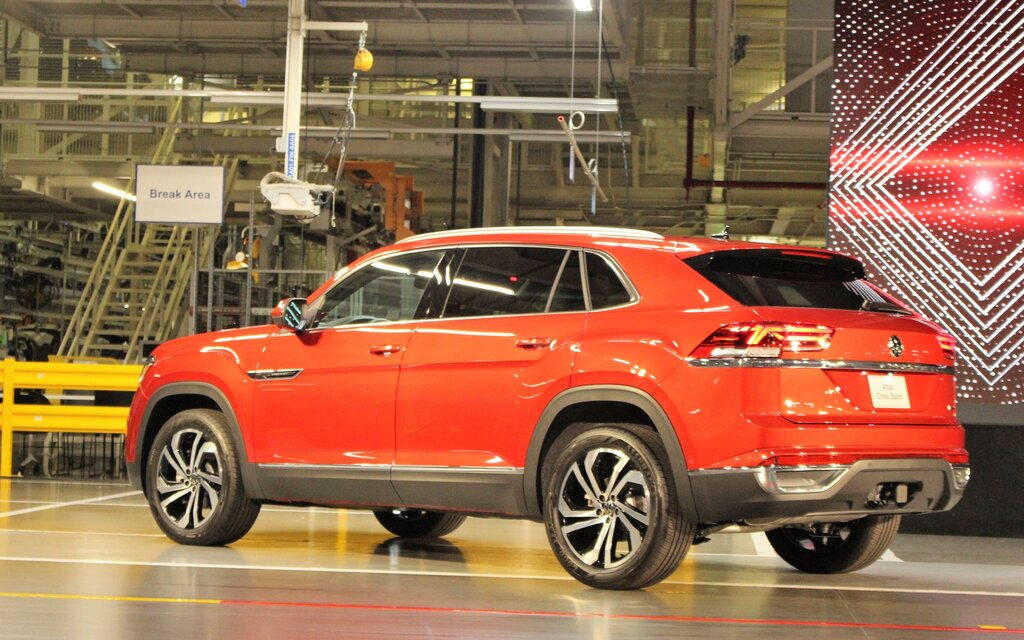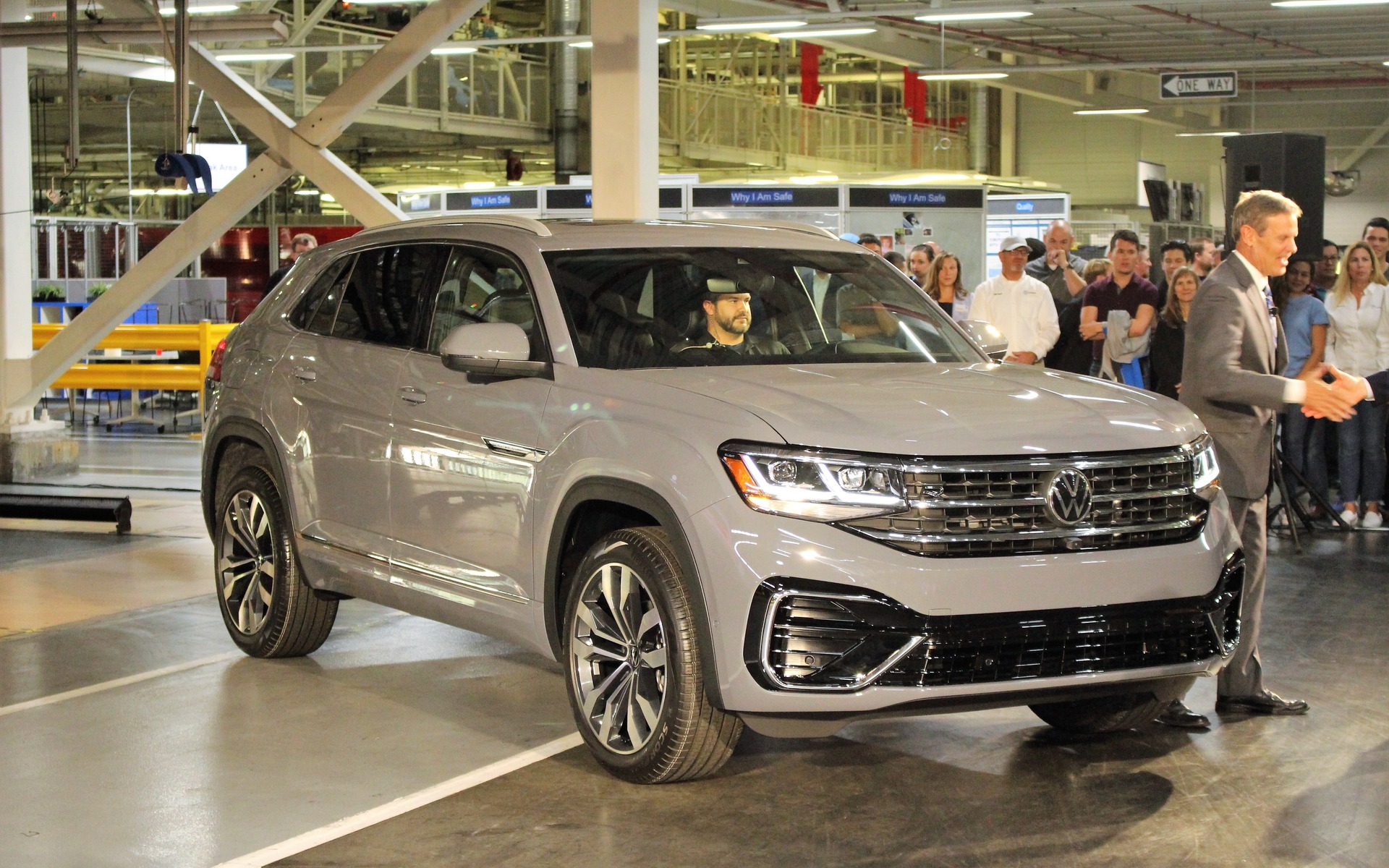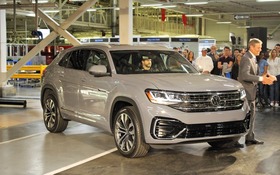2020 Volkswagen Atlas Cross Sport: Tag Team
CHATTANOOGA, Tennessee – As North-American consumers are scooping up SUVs like crazy, it only makes sense for a manufacturer to offer as many as possible and cover as many segments it can. Volkswagen currently has two utility vehicles in its Canadian and U.S. model lineup, but a third one will be added for 2020, with a fourth one to come along later.
Between the compact and three-row midsize SUV segments, there’s the midsize five-passenger category that’s gaining momentum with the recent addition of the Honda Passport and the Chevrolet Blazer. Not to mention well-established players like the Ford Edge, the Nissan Murano, the GMC Acadia, the Jeep Grand Cherokee and the Hyundai Santa Fe. Arguably, the Subaru Outback and Toyota 4Runner as well.
The new 2020 Volkswagen Atlas Cross Sport will rival most of them.
Not only does it share its name with the existing three-row Volkswagen Atlas, but a slew of mechanical components as well. From a financial standpoint, it makes perfect sense, as development costs are split between the two—or at least, they’ve already been paid for. Honda did just that with the Pilot and the Passport. Yet VW is investing another USD$340 million in the Chattanooga assembly plant in preparation to produce this new SUV.

As its Cross Sport moniker suggests, it’s touted as a more dynamic vehicle, with a coupe-like roofline for a sportier appearance. The three-bar grille is different from the one on the seven-passenger Atlas, but the overall design isn’t quite as stunning as that of the Volkswagen Atlas Cross Sport Concept shown at the 2018 New York Auto Show. Compared to the bigger Atlas, it rides on the same wheelbase and is just as wide, while overall length has been cut by 71 millimetres and height is down by 58 mm.
Obviously, there’s no third-row seat, and the second-row bench’s seatback angle can be tilted by as much as 14 degrees for extra comfort. In all but the base trim level, we also find a fold-down centre armrest. Cargo space is rated at 1,141 litres with the rear seats up, and 2,203 litres when they’re folded down. That’s quite a difference with the regular Atlas which boasts a max cargo capacity of 2,741 litres. In its segment, the 2020 Volkswagen Atlas Cross Sport beats all of its competitors except the Acadia and the Passport.
Under the hood, a turbocharged 2.0-litre four-cylinder engine is offered in the base Trendline. It develops 235 horsepower and 258 pound-feet of torque, while the Comfortline and Execline get the brand’s 3.6-litre V6 that belts out 276 horsepower and 266 pound-feet. An eight-speed automatic transmission manages the two engines, and both are come standard with 4MOTION all-wheel drive as well. There might also be a Trendline variant equipped with the V6 engine in Canada, which is yet to be confirmed.

The Trendline will include 18-inch alloy wheels, LED headlights and taillights, air conditioning, heated front seats, blind spot monitoring and autonomous emergency braking with pedestrian detection. The Comfortline, which Volkswagen expects will account for about half of total sales, gets a panoramic sunroof, an intelligent key system with remote engine start, power-adjustable front seats, dual-zone climate control, perforated leatherette upholstery and an eight-inch infotainment screen with Apple CarPlay and Android Auto integration.
The range-topping Execline boasts 20-inch alloy wheels, perforated leather seating, ventilated front seats, heated rear seats, ambient lighting, a 360-degree camera system, lane keep assist, a 10-inch infotainment display and a Fender 12-speaker sound system. An R-Line package is optional, which piles 21-inch wheels, sportier bumpers and a heated steering wheel.
Pricing isn’t yet available, but when it goes on sales next spring, we think the 2020 Volkswagen Atlas Cross Sport will start at about $40,000 before freight and delivery charges, smack in the middle of the five-passenger SUV crowd. Together with the regular Atlas, it will form a tag team of SUVs ready for a fight in North America. And they will eventually be joined by another Volkswagen utility vehicle positioned below the Tiguan.












